SUMMARY
This is AI generated summarization, which may have errors. For context, always refer to the full article.
![[In This Economy] Is the Philippines quietly getting richer?](https://www.rappler.com/tachyon/2024/04/20240426-Philippines-quietly-getting-richer.jpg)
The Economist recently ran a piece titled, “Without fanfare, the Philippines is getting richer.”
Paywalled as it is, many people only got to read the title and the social media captions. On X (formerly Twitter), the post about it got angry and bemused reactions from Filipinos, ranging from “no, it’s only the rich who are getting richer” to “meh.”
I got to read the article itself, and I agree with many of the points made, including: the Philippines “is often an afterthought for investors,” “the economy has quietly boomed under a variety of regimes (from Aquino to Duterte), “growth has been brisk since 2012 (except during the pandemic),” and “the Philippines has enormous untapped potential: warm weather, pristine beaches, coral reefs and a culture of hospitality.”
But it’s important to nuance some of the other claims made.
First, the author says that under the Marcos administration, “growth is expected to be around 6% over the next few years.” The Economist includes a graph showing the growth of Philippine GDP (gross domestic product) vis-à-vis its ASEAN neighbors. The article then echoes a World Bank projection that the Philippines “will soon be an upper-middle-income country.”
In the same graph, though, it’s quite apparent that the Philippine recession (or economic downturn) during the pandemic was ASEAN’s deepest. We’re still feeling the permanent scars wrought by the pandemic recession, and I wrote before that we will need growth to be above 10% annually if we are to get back on the pre-pandemic trajectory by 2028. Growth of about 6% just won’t cut it.
While it’s true that the Philippines is quietly getting richer, one should note that regional neighbors like Vietnam are becoming richer a lot faster.
Development is often measured by an economy’s average income, or GDP per person. If you look at the Philippine trend of GDP per person, it has been growing a lot slower in past decades compared to many of its ASEAN neighbors (see graph below). We’re growing so slowly that Vietnam (which was a lot poorer than us just a few decades past) already became richer than us in 2020.
The Philippine government likes to trumpet that we will soon become an upper-middle income country, based on the World Bank’s definition. But as I wrote recently, we were projected to achieve this status as early as 2018! Six years later, we’re still dreaming of it. Indonesia made the transition just this year, and Vietnam is on track to cross over faster than us. We must all ask: why is the Philippines taking too long to become an upper-middle income country?
The Economist piece was right to describe President Marcos as “the son of an appalling kleptocrat” who was “helped by a massive campaign of disinformation aimed at rehabilitating the family name.” But we need to provide context to some other statements, like: “Whereas Mr Duterte filled key posts with his drinking buddies from Davao…Marcos has mostly appointed technocrats” who are “widely praised.”
In case the author missed it, Duterte, too, appointed his own coterie of PhD-wielding technocrats. And while Carlos Dominguez III, the previous finance secretary, was not a technocrat per se (he was a businessman), he pursued economic policies that were very much in line with what technocrats would ordinarily pursue (including tax cuts for corporations).
The article also quotes an officer of the Ayala conglomerate who appreciated the “high level of collaboration between the government and the private sector.” He may well be referring to the Private Sector Advisory Council (PSAC), a group of billionaire tycoons who advise the President on business and economic matters. However, there are talks of the PSAC serving as a “shadow Cabinet,” pursuing corporate interests and asserting its pro-business agenda as it whispers in the President’s ear.
The article also says that “Mr Marcos is nowhere near as bad as many observers feared.” He is commended for continuing to upgrade the country’s infrastructure, for aggressively wooing foreign investments, and for being not as foul-mouthed as Rodrigo Duterte.
But not everything is so rosy. First off, the benchmark for leadership was so low that Marcos now appears as a huge improvement. Second, Marcos himself pushed for questionable policies that could endanger the economy. In his first year in office, he led the creation of a pseudo-sovereign wealth fund despite the lack of government surpluses, and despite the risks posed on the financial sector. Marcos is also pushing for economic charter change, which, apart from being needless, also risks political changes to the Constitution (there are rumors of lawmakers wanting, say, term limit extensions).
The article lauds the “national digital identity system” (Philippine Identification System or PhilSys) without mentioning the numerous data leaks from various government agencies – incidents that have shaken public confidence in cybersecurity. That could well be the reason why, as the article points out, only about 70% of Filipinos are registered under PhilSys, “far behind the nearly 100% rate in India, a poorer country.”
A big obstacle to growth mentioned in the piece is: “several laws discourage foreign investment: foreigners may not own stakes of more than 40% in a wide variety of industries, from public procurement to trading.”
But the article also omits to say that many reforms have already liberalized various sectors despite the constitutional limits. Proponents of charter change are, in fact, just opening up three sectors: higher education, advertising, and public utilities. The rest of the economy already allows full or majority foreign ownership. Yet despite this, investments remain anemic. I discussed possible reasons for this in my previous pieces on economic charter change.
Finally, the article mentions the phrase “Trump-proof” even as it acknowledges that the “global environment is deeply unpredictable” and that Donald Trump, if he wins in November, could suddenly declare war on outsourcing” – a major cash cow of the Philippine economy.
Despite these global uncertainties, I would agree with the general idea that the Philippines is getting quietly richer. But we could be a lot more prosperous now if not for the myriad domestic constraints (like rampant corruption and red tape) that keep pulling us back. – Rappler.com
JC Punongbayan, PhD is an assistant professor at the UP School of Economics and the author of False Nostalgia: The Marcos “Golden Age” Myths and How to Debunk Them. He was recently named one of The Outstanding Young Men (TOYM) for 2023. JC’s views are independent of his affiliations. Follow him on Twitter/X (@jcpunongbayan) and Usapang Econ Podcast.
1 comment
How does this make you feel?
![[In This Economy] Can the PH become an upper-middle income country within this lifetime?](https://www.rappler.com/tachyon/2024/04/tl-ph-upper-income-country-04052024.jpg?resize=257%2C257&crop=295px%2C0px%2C720px%2C720px)

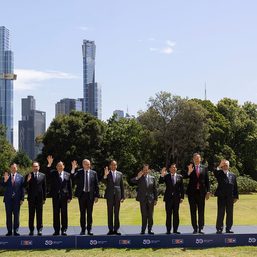
![[OPINION] Controversy over ASEAN’s ‘Swift’ week](https://www.rappler.com/tachyon/2024/03/tl-asean-swift-week.jpg?resize=257%2C257&crop=357px%2C0px%2C720px%2C720px)
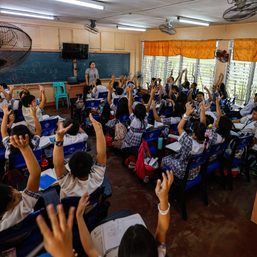

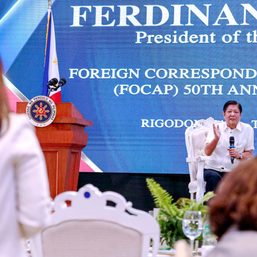
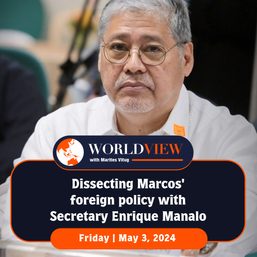
![[OPINION] Red-tagging is so yesterday. Welcome to the era of Liza-tagging](https://www.rappler.com/tachyon/2024/05/tl-liza-tagging-05022024.jpg?resize=257%2C257&crop_strategy=attention)

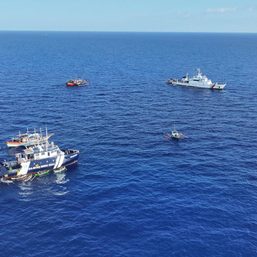

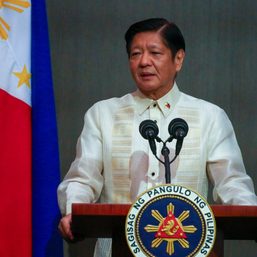
![[Vantage Point] Joey Salceda says 8% GDP growth attainable](https://www.rappler.com/tachyon/2024/04/tl-salceda-gdp-growth-04192024.jpg?resize=257%2C257&crop_strategy=attention)
![[In This Economy] Looks like PH economy will never get back on track. Here’s the data.](https://www.rappler.com/tachyon/2024/02/20240202-PH-economy-back-on-track.jpg?resize=257%2C257&crop=289px%2C0px%2C720px%2C720px)
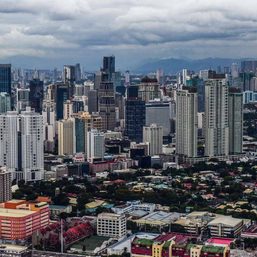
![[In This Economy] Something’s broken, and it’s hidden by ‘high’ economic growth](https://www.rappler.com/tachyon/2023/11/something-broken-hidden-economic-growth-November-10-2023.jpg?resize=257%2C257&crop=276px%2C0px%2C720px%2C720px)
![[OPINION] Filipinos, is it time to retire ‘Miss Saigon’?](https://www.rappler.com/tachyon/2024/05/tl-retire-miss-saigon-05042024-2.jpg?resize=257%2C257&crop=261px%2C0px%2C720px%2C720px)

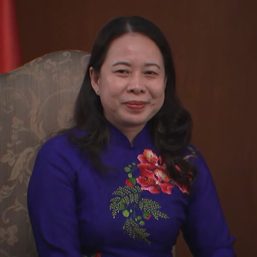
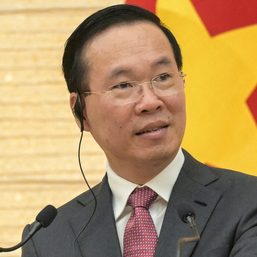
It is appreciated that our country is “getting quietly richer.” But this should not be the sole focus and top priority. Instead, our government should prioritize addressing the socioeconomic problems of poverty, employment, purchasing power, equity, and government debt. But this is not so because our society intends to hide “neo-feudalism,” as discussed by Prof. Sam Vaknin.